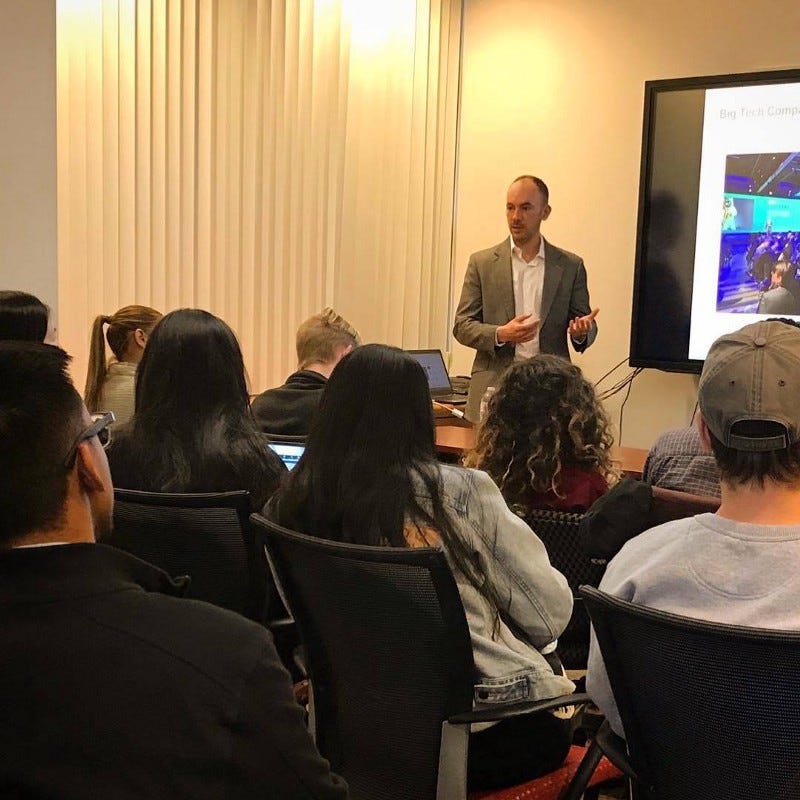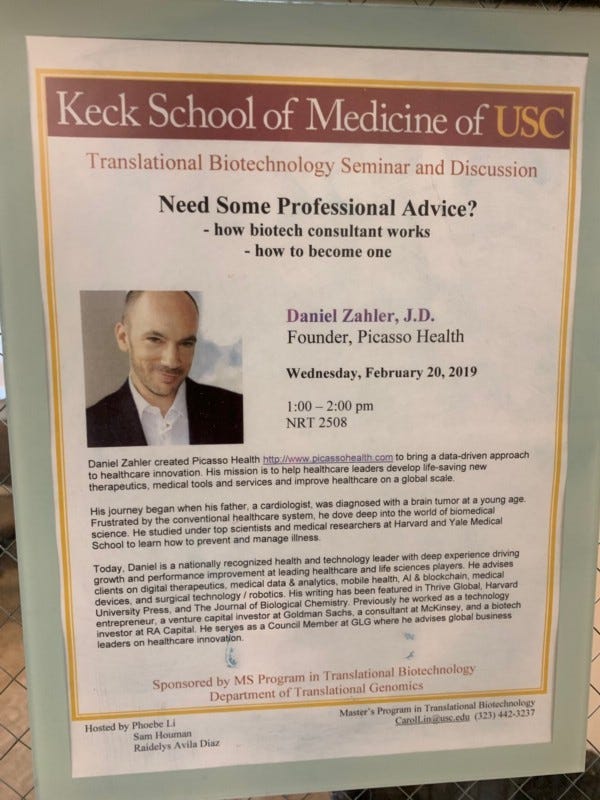What does a Biotech & MedTech Consultant Actually Do?
This week, I presented a talk at USC Keck School of Medicine. The program on Department of Translational Biotechnology invited me to speak…

This week, I presented a talk at USC Keck School of Medicine. The program on Department of Translational Biotechnology invited me to speak with grad students on careers in biotech and medtech.
The title of my talk was: “What does a Biotech Consultant Actually Do?” I began the talk with a silent meditation and breathwork exercise (yes, I’ve become so LA).
And presented the following:
Preventive healthcare is the future of health & wellness. It’s been estimated 60% of our overall health comes from lifestyle, diet & exercise. The hottest areas of medtech today are tools for behavioral health, e.g. “digital therapeutics” to manage weight loss and treat addiction, and “smart” medical devices to make diagnosis and treatment easier.
You don’t need a MBA or PhD to be a health & biotech executive. Sure, a baseline level of knowledge is important. But “soft skills” are far more predictive of career success: listening skills, problem solving, leadership, interpersonal communication, resilience, being adaptable.
Transitioning from academia to a corporate job can be a challenge. I joked there should be a TED talk series to help students learn real-world skills like office communication and politics, work-life balance, paying taxes, how to behave at an office party. (If anyone has developed a good resource for this, please let me know!)

4. Networking is changing. In-person events and conferences aren’t the only way to meet people who can help your career. Students should be sharing their work online via blog posts, social media discussions, even podcasts. The best networking combines online and offline approaches. The two channels should be mutually reinforcing.
5. There are new ways to stay educated outside school. You can take online courses on Udemy or Coursera in nearly any subject. You can use Twitter to stay on top of research developments in neuroscience or the microbiome. It’s like sitting in lectures with the best Harvard University professors — and it’s accessible to anyone, anywhere.
I then opened it up for Q&A and shared a few insights about where I think the field is heading. Thanks to USC and Keck School of Medicine for having me!


